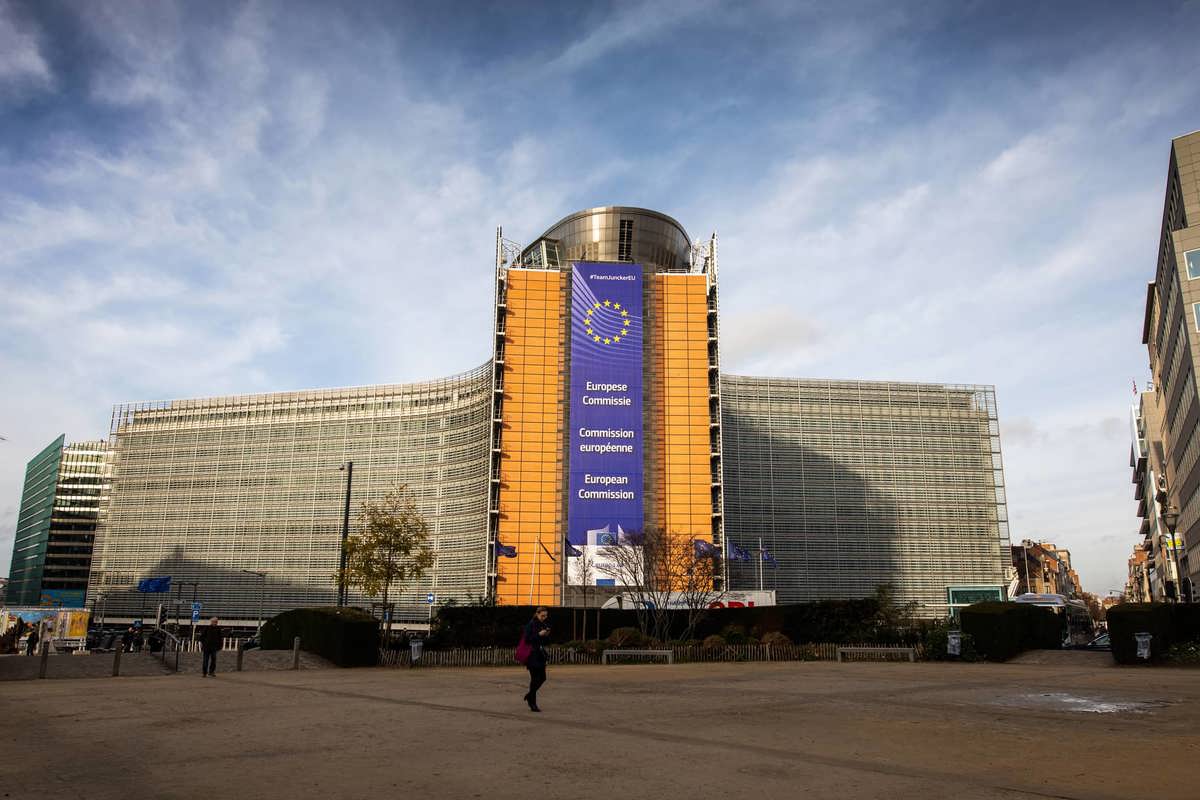Why EU's proposed Clean Industrial Deal will matter for shipping
The European Commission’s proposed Clean Industrial Deal sets ambitious targets to boost domestic green fuel production, but shipping organisations want more nuanced clarifications.
 PHOTO: European Commision headquarters in Brussels, Belgium. Getty Images
PHOTO: European Commision headquarters in Brussels, Belgium. Getty Images
The European Commission (EC) has proposed a Clean Industrial Deal (CID) action plan to prioritise domestic production of green fuels and technologies by mobilising at least €100 billion ($105 billion) in funding through national and EU-level ETS allowances and reducing red tape around permitting, investment approvals and regulatory processes.
“Leveraging EU and national ETS revenues is essential to build industrial capacity in Europe and to bridge the immense price gap between conventional and clean fuels that can be up to five times more expensive. In this regard, grants- and auctions-as-a-Service mechanisms can help pool national ETS revenues to support these objectives,” European Community Shipowners Association (ECSA) said in a statement.
The CID builds on the EU Green Deal’s ambitions and maintains the targets of a 55% reduction in net GHG emissions by 2030, 90% by 2040 and net-zero by 2050.
Among the range of proposals, those particularly relevant to shipping include the creation of a green hydrogen mechanism, the development of an investment plan for sustainable transportation and the establishment of a bioeconomy strategy.
The green hydrogen mechanism is set to launch in the second quarter of this year under the broader umbrella of the European Hydrogen Bank initiative. This mechanism aims to “mobilise and connect offtakers and suppliers, linking participants with financing and de-risking instruments to facilitate the aggregation of offtakers’ demand for hydrogen and hydrogen-derived fuels” in shipping and other sectors, the statement reads.
However, Faig Abbasov, shipping director at European non-profit Transport & Environment (T&E) argued that the proposal “lacks essential details on how the EU is going to bridge the price gap between fossil fuels and greener alternatives or address the need for larger and longer-term offtake commitments.” He added that the mechanism should not only act as a matchmaker but also enable “double-sided auctions,” which are currently omitted from the text.
The EC also plans to direct investments into "specific" low- and zero-emission fuels and the deployment of charging infrastructure through its Sustainable Transport Investment Plan (STIP). However, key details, including a timeline, have yet to be clarified.
Some shipping-focused organisations remain cautiously optimistic about this agenda.
STIP is the EU government’s chance to “carve out a competitive advantage in clean shipping, and maximise the opportunity offered by the burgeoning e-fuel industry, all while accelerating towards net zero,” Aurelia Leeuw, director of EU policy at SASHA Coalition said.
The World Shipping Council and T&E urged prioritising investments in green hydrogen-based fuels within the regulation. A European coalition, including the European Community Shipowners Association (ECSA) and the Methanol Institute, has advocated for STIP to de-risk investments needed to scale up the production and distribution of low- and zero-emission fuels for ships.
And finally, the “bioeconomy strategy” aims to boost the adoption across sectors in the EU and reduce dependence on raw material imports. However, this proposal has received a mixed response from the shipping industry.
“The announced Bioeconomy Strategy is cause for concern, as it leaves the door open to marine biofuels. Biofuels cut fewer emissions than e-fuels, endanger biodiversity, jeopardise energy and food security, and are at risk of fraud. Their use would only undercut maritime e-fuel production. Not clean, and certainly not competitive,” SASHA Coalition’s Leeuw said.
On the other hand, Angel Alvarez Alberdi, the secretary general of European Waste-based & Advanced Biofuels Association (EWABA) believes that “Promoting renewable fuels, including waste-based and advanced biodiesel, will be key to strengthening competitiveness and accelerating the shift toward greener shipping.”
The CID will now be submitted to the European Parliament and the Council of the European Union for approval before it can be officially adopted.
By Konica Bhatt
Please get in touch with comments or additional info to news@engine.online





